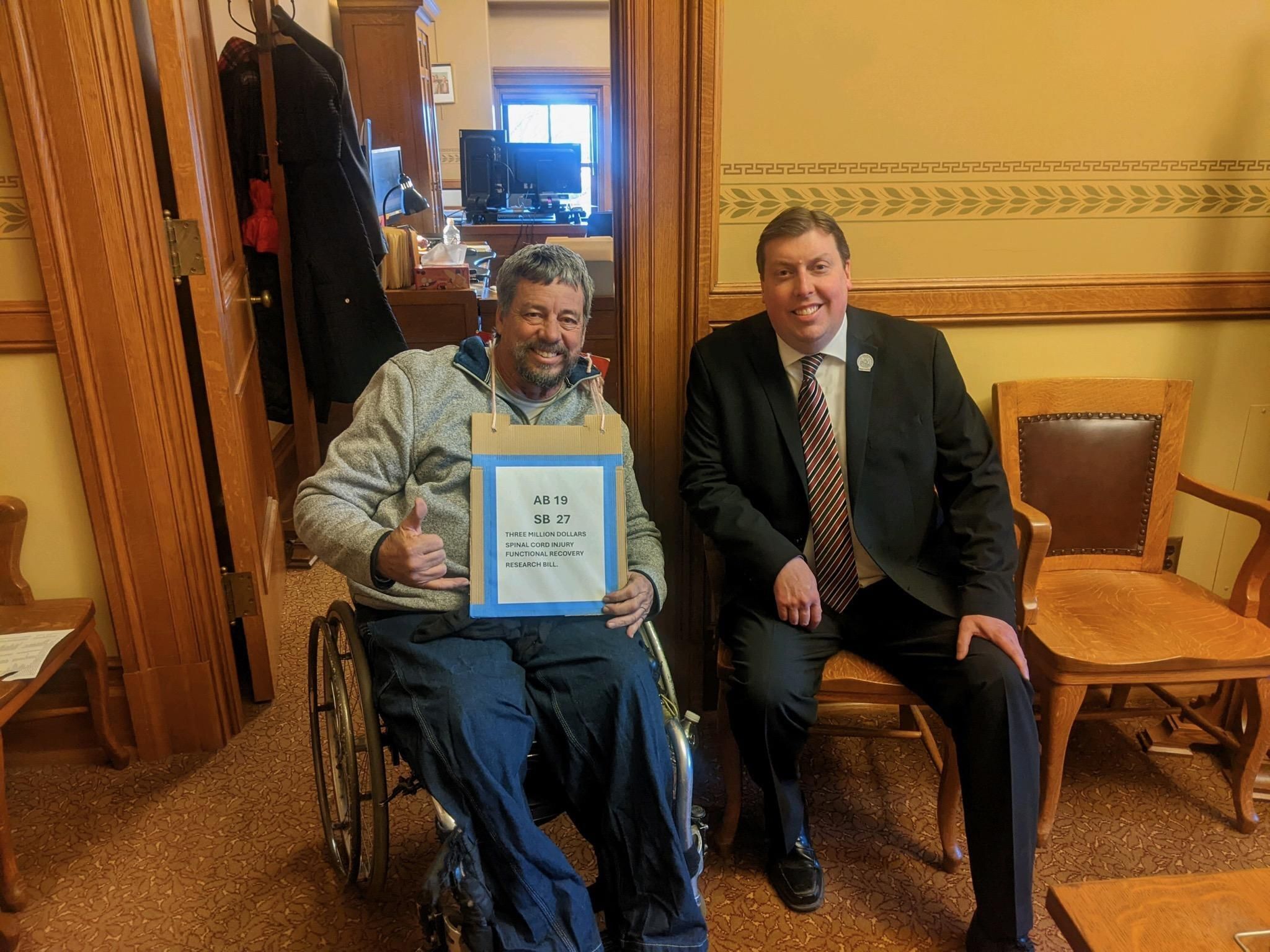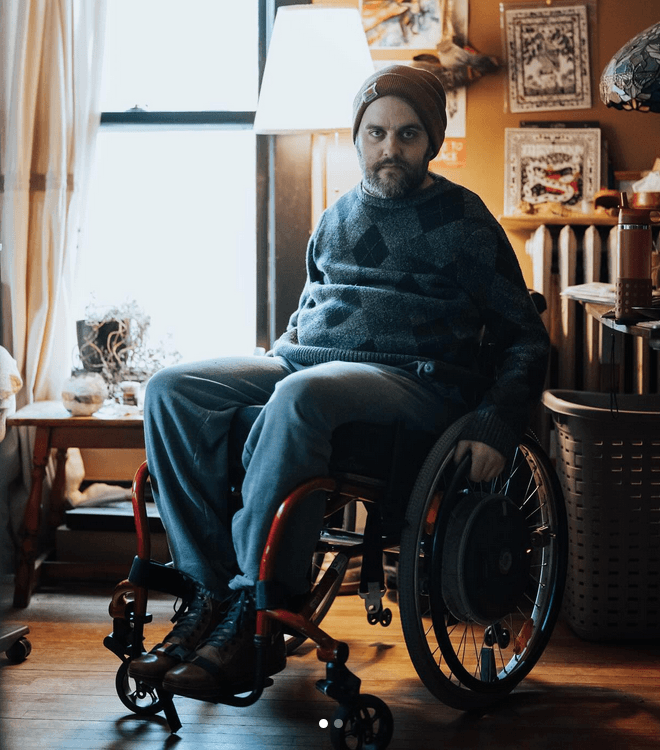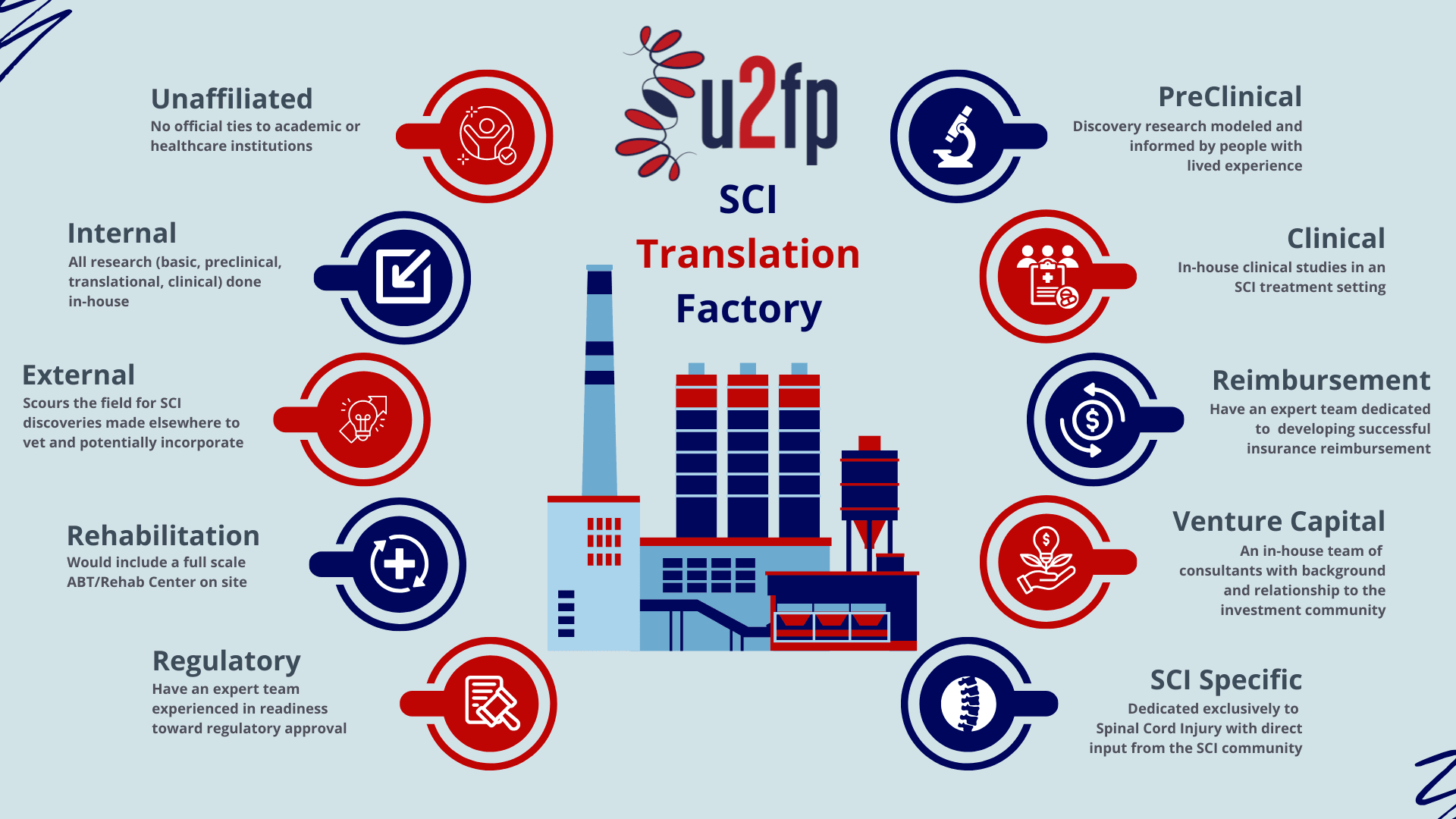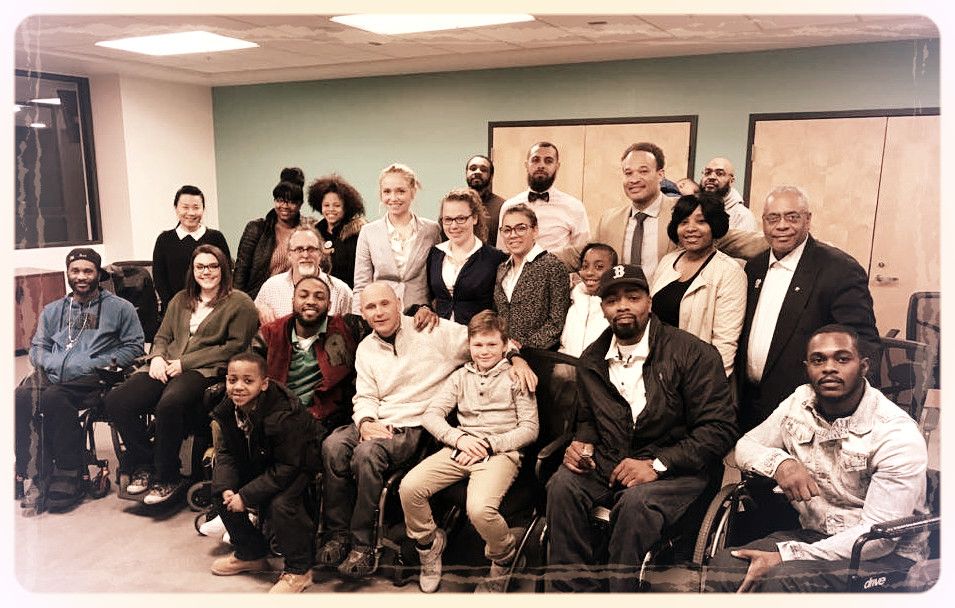Dec 23, 2024
A Strategy to Bet On
Matthew Rodreick
Well, it’s been a year. As usual, the shorter days and holiday hustle have me going inward and taking stock of all we have and have not achieved this year for those living with a SCI. It’s always a mixed bag (at best), heavy with melancholy, missed chances and yet new, surprising opportunities.
Why the melancholy? You have to understand that for me, these reflective musings always begin with a difficult fact: my son Gabriel (and the SCI community as a whole) has yet to see any significant and lasting return of function. And so I always ask myself: what is U2FP doing to fundamentally change that, on both an individual and systemic level?

Our long-time WI CAN Advocate John Martinson with Rep. Mark Born during our push for the Assembly to put our $3M SCI Research Grant Bill to a vote.
Here are a few highlights from this past year that I’ve used to prop myself up emotionally so far this winter:
- WI CAN advocates got our $3M SCI Research Grant bill passed in the Assembly by a near unanimous margin: 93-3. We got blocked in the Senate unfortunately, but after recent state elections are in the strongest position we've ever been in for the 2025 legislative session.
- I presented at the 2024 ASIA conference and exposed attendees to our Lab Rats program. I was joined by researchers Lana Zholudeva, Murray Blackmore and a PhD candidate with a SCI from Harvard Medical School, Jason Biundo, who testified to the efficacy and effectiveness of putting people with lived experience into labs as consultants.
- Talking with Dr. Elizabeth Bottorff on our CureCast podcast about the (still) under-discussed subject of sexual function research was enlightening and encouraging. Here’s a smart, young researcher who is tackling a difficult area of recovery and not afraid to blaze a new trail - we need more young scientists with her moxy! (I was also reminded of the ripple effects of our SCI/TBI Research bill here in Minnesota, which funded the EStand trial that Elizabeth’s research came out of).
- Hearing testimonials from the SCI community during day 2 of our Symposium in Atlanta this year was one of the most cathartic experiences I’ve had in a while. It underscored why your point of view as a person with lived experience is so needed in the research space.
- This year’s Symposium also featured a pair of presentations by ONWARD Medical’s CEO Dave Marver and Jim Guest on their ARC-EX transcutaneous stim for upper extremity function. Though FDA approval was still pending in September, this device just received de novo classification and authorization to market its ARC-EX System from the FDA last week - congratulations to ONWARD Medical! U2FP played a small part in that long effort by funding Chet Moritz’ clinical studies through our Washington state Bill for SCI research funding.
- Finally, my presentation of the SCI Translation Factory to attendees at the ISRT network meeting in London this fall was the first public unveiling of the vision I recently shared with you here.
Are these accomplishments, these points of influence on the cure economy significant? Absolutely - they are the foundation for accelerating the discovery to treatment pipeline, prodding the system to change in significant ways.
So, do these highlights help relieve my melancholy and satisfy my inner critic? Not really. Until my son, and all those with an SCI, see lasting return of function from their injuries, I remain fundamentally dissatisfied. And it’s because this injury is not an abstraction to me or anyone else in our community. Every time you think you have it under control, it rears its chaotic, life-threatening head.

Gabriel Rodreick earlier this year (photo credit, Tom Smouse).
Case in point: just this past fall Gabriel was rushed to the hospital in Duluth while visiting friends in a Wisconsin small town, because his 32 year old body was experiencing uncontrolled Autonomic Dysreflexia. He had elevated cardiac enzymes indicating possible damage to his heart. He required a cardiac echogram (which fortunately indicated no permanent damage). It reminded me of one of his brilliant tunes: How Are You Not Freaking Out? born out of the relentlessness of SCI’s toll on the body.
This is why prodding the system, cajoling it, annoying it, hoping that it will reform itself in time for us and our loved ones to recover is not a strategy I’m willing to bet my son’s life on. It’s also why, since I sent that message about the SCI Translation Factory at the beginning of this month, I’ve received non-stop enthusiasm coupled with valuable ideas and networking leads to begin to get it off the ground. Those with the injury, their families and clinicians on the front lines know what's at stake.

But we also can’t wait for the perfect idea (which doesn’t exist) to take form. We have to work on multiple fronts at once. Which is why all of U2FP’s current work is inextricably linked with turning the vision of an SCI Translation Factory into a reality. We have to helpfully prod the system we have while we also create a complement to the system that will prod it even more.
It’s why I’ve been spending the last couple of months crafting a business plan for this vision of a Translation Factory WHILE ALSO working alongside U2FP’s staff to deepen the impact of all our work.
As always, we need you. Now more than ever.
Join us,
PS - Consider making a year-end gift to support all the good work U2FP is doing to fight for recovery of function after spinal cord injury.

















